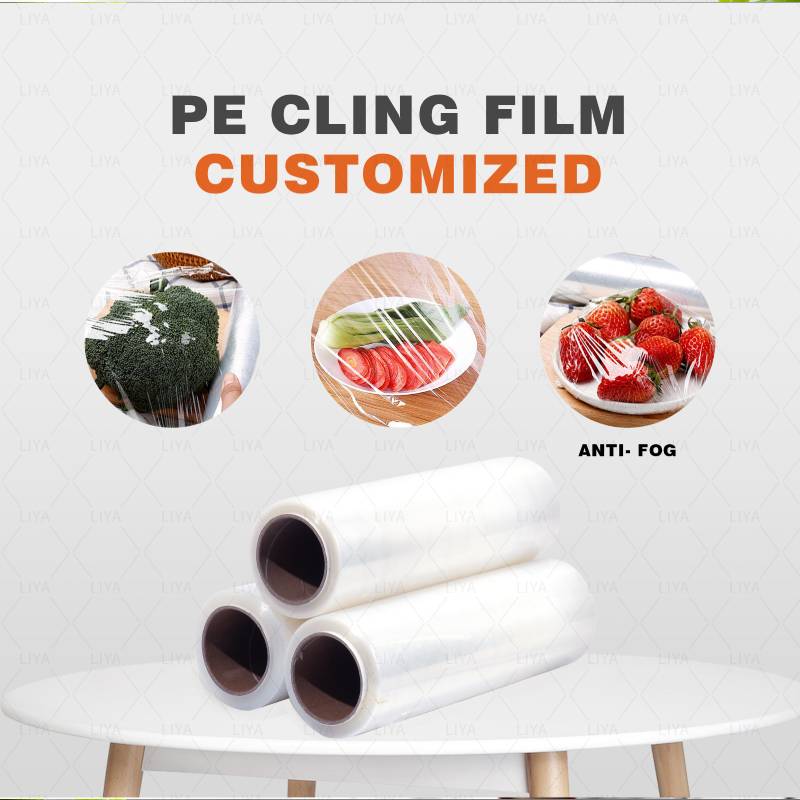Eco-Friendly Plastic T-Shirt Bags Biodegradable & Durable Solutions
- Understanding the Environmental Impact of Traditional Plastic Bags
- Key Innovations in Eco-Friendly Plastic Bag Technology
- Comparing Leading Eco-Friendly Plastic Bag Manufacturers
- Customization Options for Sustainable Branding
- Real-World Applications Across Industries
- Balancing Cost and Sustainability in Bulk Purchases
- Future Trends in Eco-Friendly Plastic Solutions

(ecofriendly plastic bags)
The Growing Demand for EcoFriendly Plastic Bags
As global awareness of environmental issues intensifies, businesses and consumers are shifting toward sustainable alternatives like eco-friendly plastic bags. Traditional single-use plastics contribute to 8 million tons of ocean pollution annually, prompting governments to enforce stricter regulations. In response, manufacturers now produce biodegradable, compostable, and recyclable options such as black plastic t-shirt bags and white plastic t-shirt bags, designed to reduce ecological harm without sacrificing functionality.
Key Innovations in Eco-Friendly Plastic Bag Technology
Modern eco-friendly plastic bags leverage advanced materials like PBAT (polybutylene adipate terephthalate) and PLA (polylactic acid), which decompose within 6–12 months under industrial composting conditions. These materials retain the durability of conventional plastics, with tensile strengths exceeding 25 MPa. Certifications such as OK Compost and BPI ensure compliance with international standards, while UV-resistant additives extend the lifespan of black plastic t-shirt bags for outdoor use.
Comparing Leading Eco-Friendly Plastic Bag Manufacturers
| Manufacturer | Material | Price per 1k Units | Degradation Time | Customization |
|---|---|---|---|---|
| EcoPack | PBAT/Starch Blend | $48 | 9 months | Full-color printing |
| GreenFlex | PLA | $52 | 6 months | Size variations |
| BioBag Solutions | Oxo-biodegradable | $45 | 18 months | Handle reinforcement |
Customization Options for Sustainable Branding
Businesses can tailor white plastic t-shirt bags or colored variants to align with brand aesthetics. Options include:
- Thickness adjustments (15–30 microns)
- Custom dimensions (12"x18" to 18"x24")
- Water-based ink printing for logos
Minimum order quantities (MOQs) start at 5,000 units, with production cycles averaging 14 days.
Real-World Applications Across Industries
Retail chains report a 40% reduction in carbon footprint after switching to eco-friendly plastic bags. Case studies highlight:
- A fashion brand using black plastic t-shirt bags for luxury packaging, enhancing brand perception.
- Grocery stores adopting compostable variants, achieving zero-waste certification.
- Event organizers utilizing printed white plastic t-shirt bags for promotional campaigns.
Balancing Cost and Sustainability in Bulk Purchases
While eco-friendly options cost 15–20% more than conventional plastics, bulk orders (50k+ units) lower prices by 30%. Tax incentives in regions like the EU and California further offset expenses. For instance, businesses using certified biodegradable bags qualify for annual rebates up to $7,500.
Future Trends in EcoFriendly Plastic Solutions
Innovations like algae-based polymers and 3D-printed eco-friendly plastic bags aim to achieve carbon neutrality by 2030. Collaborations between material scientists and manufacturers will drive down costs, making sustainable choices like black plastic t-shirt bags accessible to SMEs. As circular economy models gain traction, the industry anticipates a 200% growth in compostable bag adoption within five years.

(ecofriendly plastic bags)
FAQS on ecofriendly plastic bags
Q: Are eco-friendly plastic bags truly biodegradable?
A: Yes, eco-friendly plastic bags made from materials like PLA (polylactic acid) or plant-based starch degrade faster than traditional plastics under industrial composting conditions. However, they require specific environments to break down effectively. Always check certifications like ASTM D6400 for biodegradability claims.
Q: Can black plastic t-shirt bags be eco-friendly?
A: Traditional black plastic t-shirt bags often contain carbon black pigments, making them unrecyclable. Eco-friendly versions use alternative dyes and recyclable/compostable materials. Verify if they meet recognized sustainability standards like OK Compost.
Q: What makes white plastic t-shirt bags more eco-friendly than colored ones?
A: White plastic t-shirt bags typically lack non-recyclable colorants, making them easier to process in recycling systems. Eco-friendly variants may use natural pigments or mineral-based additives. Their simpler composition supports circular economy practices.
Q: How do I identify genuinely eco-friendly plastic bags?
A: Look for certifications like BPI, TUV, or Seedling logos on packaging. Check material s (e.g., "compostable" or "plant-based"). Avoid bags labeled "degradable" without specific composting certifications, as these may contain harmful additives.
Q: Are eco-friendly plastic bags cost-effective for businesses compared to regular ones?
A: While eco-friendly plastic bags have higher upfront costs, they align with sustainability goals and reduce long-term environmental fees. Many businesses offset expenses through green marketing advantages and compliance with plastic regulations.
-
The Best Uses for Small Trash Bags in Daily LifeNewsJul.01,2025
-
Stylish Reusable Grocery Bags TrendsNewsJul.01,2025
-
Shipping Advantages of Using Bubble Envelopes BulkNewsJul.01,2025
-
How Compostable Mailing Bags Reduce Environmental ImpactNewsJul.01,2025
-
Environmentally - Friendly Bulk Poly MailersNewsJul.01,2025
-
Eco Friendly Custom Laminated Tote BagsNewsJul.01,2025
-
Have the freedom of customizing your custom mailers any way you want! Our dedicated packaging support will help deliver you the mailing experience you need to elevate your shipping experience to the next level! Start making a strong impression on your customers and stand out from your competitors! -
LIYA uses high quality raw materials which directly purchased from large enterprises domestic and overseas such as PetroChina, Sinopec, Sabic, Equate, ExxonMobil, Dow Chemical, Total, and Borouge, ensuring the price advantage and quality of the raw materials. -
LIYA uses high quality raw materials which directly purchased from large enterprises domestic and overseas such as PetroChina, Sinopec, Sabic, Equate, ExxonMobil, Dow Chemical, Total, and Borouge, ensuring the price advantage and quality of the raw materials.





